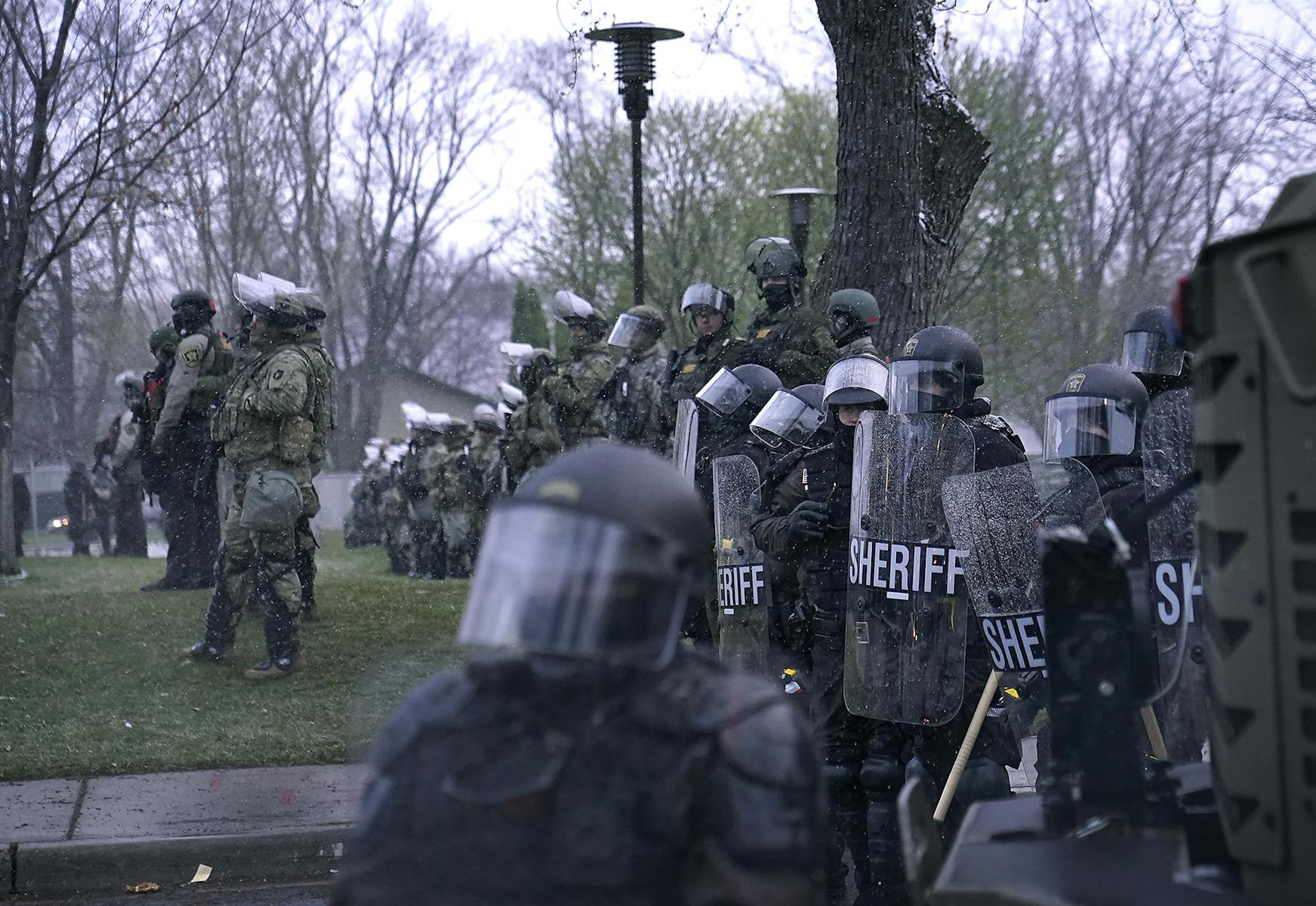
The debate over police reform is shifting behind closed doors as the Minnesota Legislature goes into overtime. Yet a clearer picture of what may — and may not — pass is coming into focus.
Support is coalescing around reforms related to traffic stops and new no-knock warrant regulations as lawmakers work to find agreement on one of the year's most pressing policy issues.
Yet, House Democrats are holding out hope that all 12 police-related bills offered up in the final weeks of the regular session still have a chance. Senate Majority Leader Paul Gazelka meanwhile is doubling down on a commitment to oppose "anything that is anti-police or makes the job of law enforcement more difficult," singling out measures such as new civilian oversight of police.
"I just think that we're at a point where we can end the legislative session with very good policies regarding the interaction of police officers with their communities," Sen. Warren Limmer, R-Maple Grove, told reporters after the Senate adjourned its regular session on Monday. "There are attitudes both in the community and in policing that need a lot of help, they need a lot of guidance, they need a lot of coming to terms with who they are and how they're perceived by each other. That's going to be a much harder thing and I don't know if legislation can necessarily do that."
Limmer said he has identified "some common ground" with what House DFL lawmakers are proposing, but he declined to identify what policies he's open to and which are non-starters.
Rep. Carlos Mariani, the St. Paul Democrat who is leading final public safety spending bill talks with Limmer, said he believes "everything is on the table" and defended his caucus' proposals as "anti-bad cop" rather than "anti-police."
"It feels more possible to me than ever before," he said.
After the Brooklyn Center fatal police shooting of Daunte Wright in April, Democrats in the legislature proposed new limits prohibiting police from stopping motorists for equipment violations or expired tabs and a bill that would stop police from arresting people for warrants related to missed court appearances for certain low-level charges.
DFL lawmakers also want to ban licensed peace officers from affiliating with white supremacist groups, require model policies for responding to public assemblies and allow communities to create citizen oversight panels for their local law enforcement agencies. Other proposals include new regulations on no-knock warrants such as requiring police chiefs to review all applications for such warrants and to report data on them to the public safety commissioner.
In addition, Democrats proposed a new requirement that relatives be able to review body camera footage of fatal encounters within 48 hours. State law enforcement lobbying groups oppose this provision, but supporters argue that the bill exempts cases where early release could hinder investigations.
A coalition of the state's largest law enforcement lobbying groups — the Minnesota Chiefs of Police and Sheriffs' associations, and the Minnesota Police and Peace Officers Association — outlined their opposition to certain policies in a letter to the Minnesota House before it passed its public safety spending bill that included numerous police reform bills.
The coalition wrote that "our associations oppose the current bill language based on several key provisions that are omitted from the omnibus bill and several items included that we firmly believe are detrimental to public safety in our state."
They said the new body camera requirements do not "recognize how investigations are conducted," and wrote that they opposed giving civilian review boards the power to subpoena officers, make decisions over law enforcement agency policy and discipline officers. The groups also did not support requiring dispatchers to refer emergency calls to a mental health crisis team, citing a lack of 24/7 resources statewide.
Earlier this year, the law enforcement coalition also spoke out against the proposal to end civil statutes of limitations against officers.
"Statutes of limitation are designed to promote justice by encouraging plaintiffs to diligently pursue their claims," the groups wrote in February. "Timeliness is important, as without it, evidence could be lost, memories could fade, and witnesses may disappear."
Leaders of the Minnesota Police and Peace Officers Association and Minnesota Sheriff's Association declined to comment Tuesday as they plan to remain a part of the final negotiations over public safety policies. The Chiefs of Police Association was not immediately available for comment.
Although the two traffic stop-related bills were among the latest to be proposed this year, Mariani believes their chances of passing are high. The Minnesota Police and Peace Officers Association has previously expressed support for the so-called "sign-and-release warrant" bill in cases where someone has missed a court date for nonviolent charges.
"The point is that all of that stuff is really common sense, and we're pretty hopeful on those two provisions in particular," Mariani said. "But obviously we're not giving up on the others."
Leaders representing each of the state's largest law enforcement lobbying groups delivered public testimony earlier this month before the public safety conference committee that Limmer and Mariani alternated leading.
Brian Peters, executive director of the Minnesota Police and Peace Officers Association, told lawmakers that his group was also "very close to agreeing" on the no-knock bill.
Peters also urged "thoughtful review to sort out which proposals will lead to safer communities with less crime as well as more help for victims of crime and which proposals seek to needlessly demonize those who protect and serve."
This and other testimony also led DFL Sen. Ron Latz, of St. Louis Park, to request that the committee run through the House's 12-item list of police reform proposals to poll the law enforcement groups' positions on each bill.
"I think we need to bring them out for all of us to understand so we can see where are there real disagreements if we need to decide to work through and where there are not any disagreements and where this could easily be resolved," Latz said.
Limmer was open to the idea, but that day's meeting ran out of time for such an exercise. Now, if that debate takes place, it will likely be in private unless Limmer and Mariani agree to a public meeting of their informal working group.
Stephen Montemayor • 612-673-1755
Twitter: @smontemayor
New Minnesota GOP leaders seek peace with party's anti-establishment wing

Who is Republican Lisa Demuth, Minnesota's first House speaker of color?

Minnesota House GOP, Secretary of State Steve Simon return to Supreme Court
Supreme Court sides with DFL and Simon, says 68 House members needed for floor action


